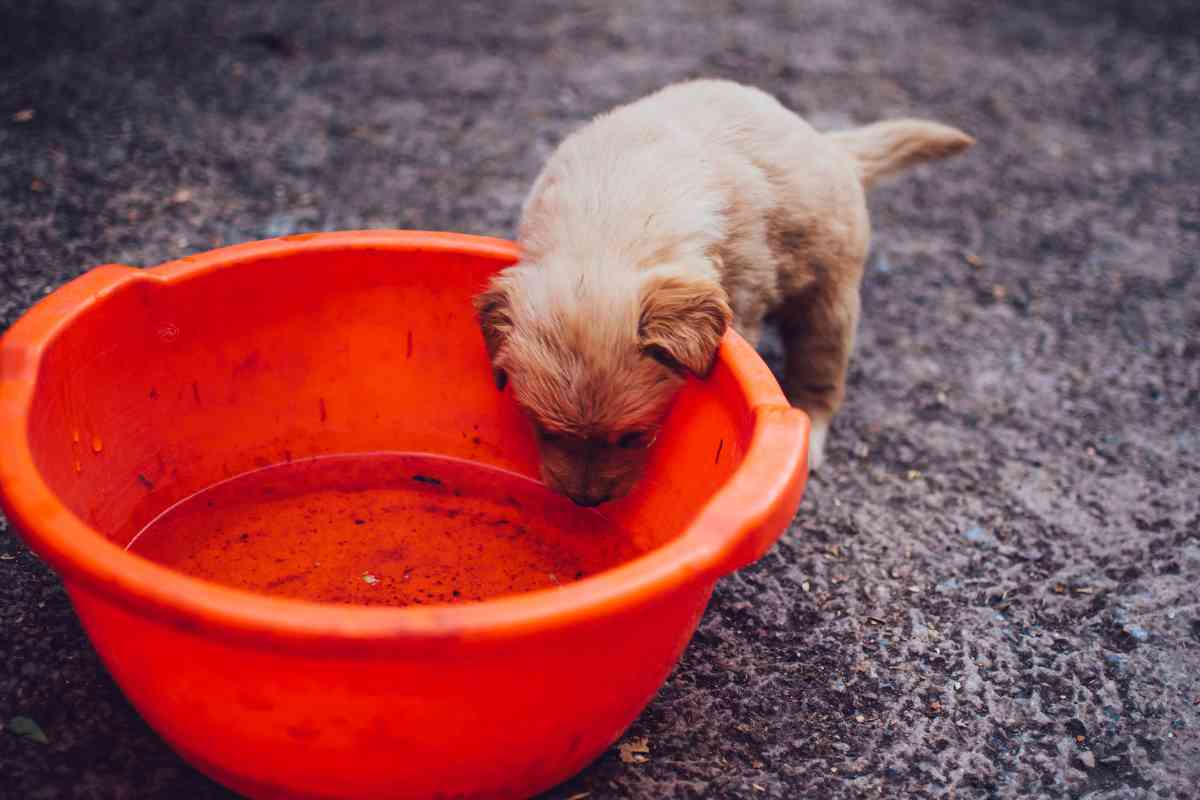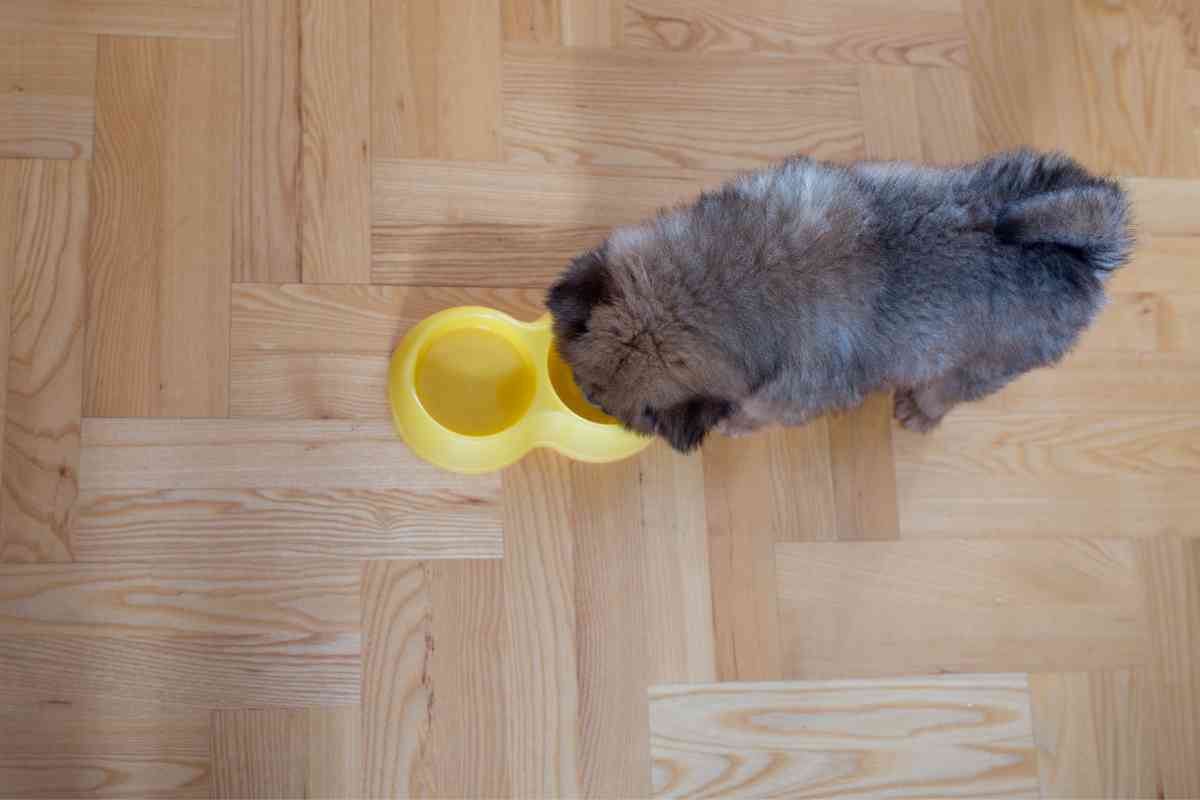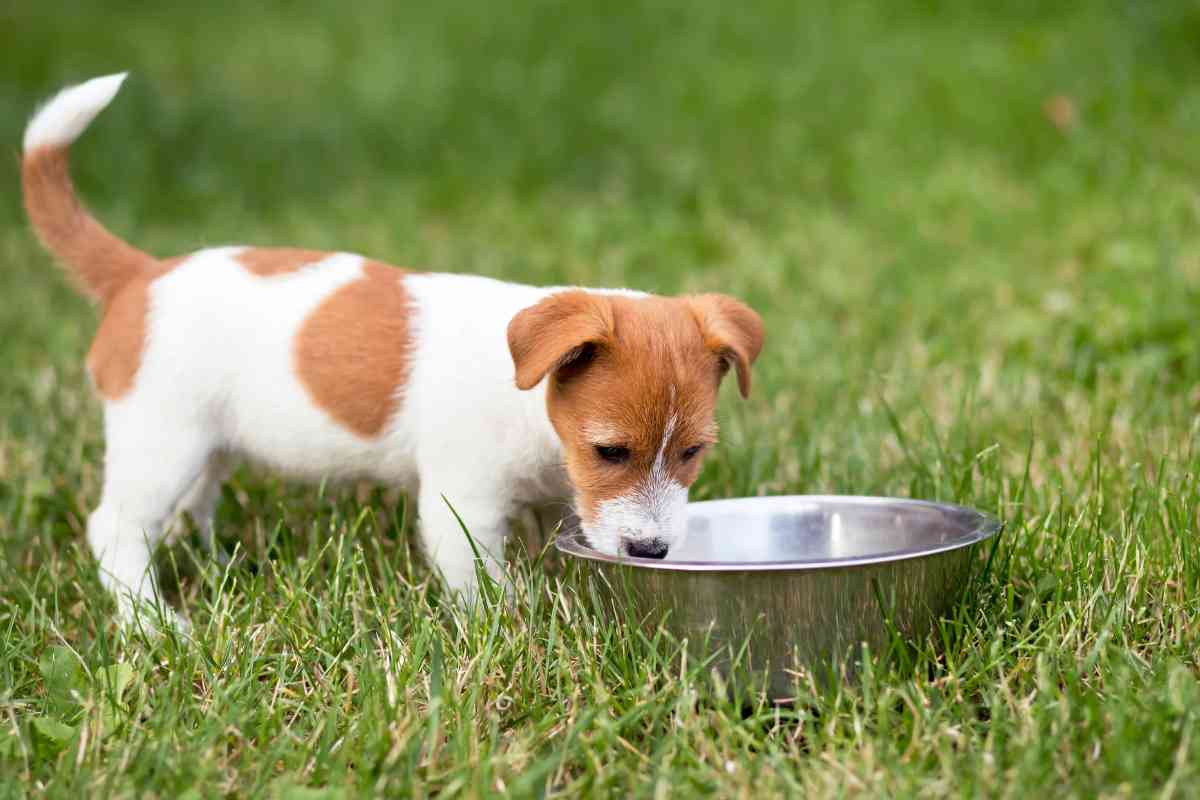Can Puppies Drink Water at 5 Weeks? Essential Hydration Guidance
As young puppies develop, their nutritional needs evolve rapidly. A significant milestone in their growth is the introduction of water to their diet. Typically, at around 5 weeks of age, puppies begin the process of weaning. This transition from a diet solely of their mother’s milk to solid food is a critical development stage, where adequate hydration plays a key role. Initially, mother’s milk provides most of the hydration they need. However, as puppies start to wean, they require an external water source.

Related Post! What Do Puppies Drink?
Can Puppies Drink Water at 5 Weeks?
Yes, puppies can drink water at 5 weeks old. This is a crucial time as they transition from mother’s milk to solid food. Introducing water is essential for their hydration and overall health. It’s important to ensure clean, accessible water and monitor their intake for any signs of dehydration or overhydration.
Introducing water to puppies at this age is crucial for both hydration and the development of proper drinking habits. It’s generally safe for puppies to start drinking water at about 5 weeks old, but it must be done carefully to avoid health issues like overhydration or aspiration. Careful monitoring ensures that puppies get the right balance of milk, water, and solid food, supporting their growth and development.
Key Takeaways:
- Puppies begin to drink water as they start to wean at about 5 weeks old.
- They require careful introduction to water to avoid health issues and support development.
- Adequate hydration is crucial alongside solid food for proper nutrition and care during this stage.
Feeding and Care for 5-Week-Old Puppies:
At five weeks old, puppies undergo significant changes in their feeding and care routine. Transitioning them from mother’s milk to solid food, we establish a schedule that supports their growth and closely monitors their health.
Transitioning from Nursing to Solid Food:
We begin weaning puppies off mother’s milk and introduce solid food to support their developing digestive system. It’s vital not to wean a puppy too early.
Although mother’s milk is rich in antibodies and nutrients, at this age, it’s crucial to gradually incorporate puppy-formulated kibble. We typically start with a mixture of high-quality, moistened kibble and milk replacer.
Related Post! Can Puppies Drink Evaporated Milk? Is It Safe?

Creating a Healthy Eating and Drinking Schedule:
Maintaining proper hydration is just as vital as solid food intake. We ensure fresh water is available to avoid dehydration. We establish a feeding schedule for your dog, providing small, frequent meals—ideally three to four times a day. Consistency with the schedule is key to regulating their digestive system and can help with potty training as they begin to develop control over their bladder and bowels.
Monitoring Health and Growth:
Regular visits to the veterinarian are essential to monitor the puppy’s growth and development. We track weight gain and watch for signs of any health issues. Puppies should be gaining weight steadily; any stagnation or loss may indicate a problem needing immediate attention. Our vigilance helps identify any digestive issues that could arise from the new diet and ensures the puppies are receiving the right balance of nutrients.
Here’s a simple table to summarize the key aspects of care we provide for 5-week-old puppies:
| Aspect of Care | Description |
| Weaning | Transition from milk to wet, nutrient-rich kibble. |
| Hydration | Fresh water available at all times to prevent dehydration. |
| Feeding Schedule | Small, frequent meals, three to four times daily. |
| Monitoring Health | Regular vet visits, tracking growth and development. |
| Potty Training | Establish routine to help with bladder and bowel control. |
Through these careful steps, we support the 5-week-old puppies in our care as they take their first steps towards becoming healthy adult dogs.
Understanding Puppy Hydration

As care providers for our furry friends, understanding the hydration needs of puppies is crucial. Typically, puppies begin to drink water around the age of 2 to 4 weeks. Proper hydration supports their rapid growth, maintains optimal body temperature, and is vital for their overall health.
Recognizing Dehydration and Overhydration in Puppies
Puppies exhibit clear signs when their water intake is not balanced. Dehydration can cause symptoms such as sunken eyes, reduced skin elasticity, and lethargy. Conversely, signs of overhydration might include vomiting or a lack of coordination. Monitoring our puppies for these symptoms is essential for timely intervention.
Optimal Water Intake for Puppies
The amount of water a puppy should drink depends on their weight and age. A general guideline is that puppies need half an ounce to an ounce of water per pound of body weight each day. However, each puppy’s needs can vary, so adjust this based on their diet, activity level, and growth.
Safe Water Practices for Young Puppies
Ensuring that water for young puppies is easily accessible and clean is a must. A ceramic or stainless steel water bowl that doesn’t tip over easily is ideal, preventing accidental spills. When transitioning from mother’s milk to solid food at around 5 to 8 weeks, puppies will naturally start to drink more water.
When to Introduce Puppies to Water

Newborn puppies rely exclusively on their mother’s milk. At about 2 weeks old, as they begin the transition to solid foods, this is when we can introduce water. Provide a shallow water bowl filled with a small amount of fresh water and refill it regularly with clean water.
- Ensure constant access to clean, fresh water.
- Replace water at least twice a day to keep it clean.
- Introduce puppies to water when they start eating solid foods.
Our knowledge and attentiveness to our puppies’ hydration from an early age set them up for a healthy start to life.
Conclusion
In conclusion, the journey of caring for puppies, particularly in their early stages, revolves significantly around their hydration needs. As pet owners, we must be vigilant about our pups’ water consumption to ensure their well-being. While puppy drink requirements vary, understanding the signs of dehydration (like pale gums) and overhydration (such as loss of appetite) is crucial. This vigilance is key to preventing issues like water intoxication and supporting healthy kidney function.
Alternatives like chicken broth or puppy milk replacement can be beneficial, especially for very young puppies who may need extra encouragement to drink or are transitioning from milk replacement formula to puppy food. Remember, ice cubes can be a fun hydration trick, but like everything, moderation is key to prevent too much water intake. Also, for pups with specific needs such as those on certain medications or with conditions like diabetes, consulting a vet for tailored hydration advice, including the use of specific formula or gruel, is essential.
Our role in ensuring the digestion and overall health of our young dogs is a rewarding responsibility. By monitoring signs like thirst, dark yellow urine, or changes in pupils, and maintaining a balance in their diet and hydration, we pave the way for their healthy development and a joyful life together.